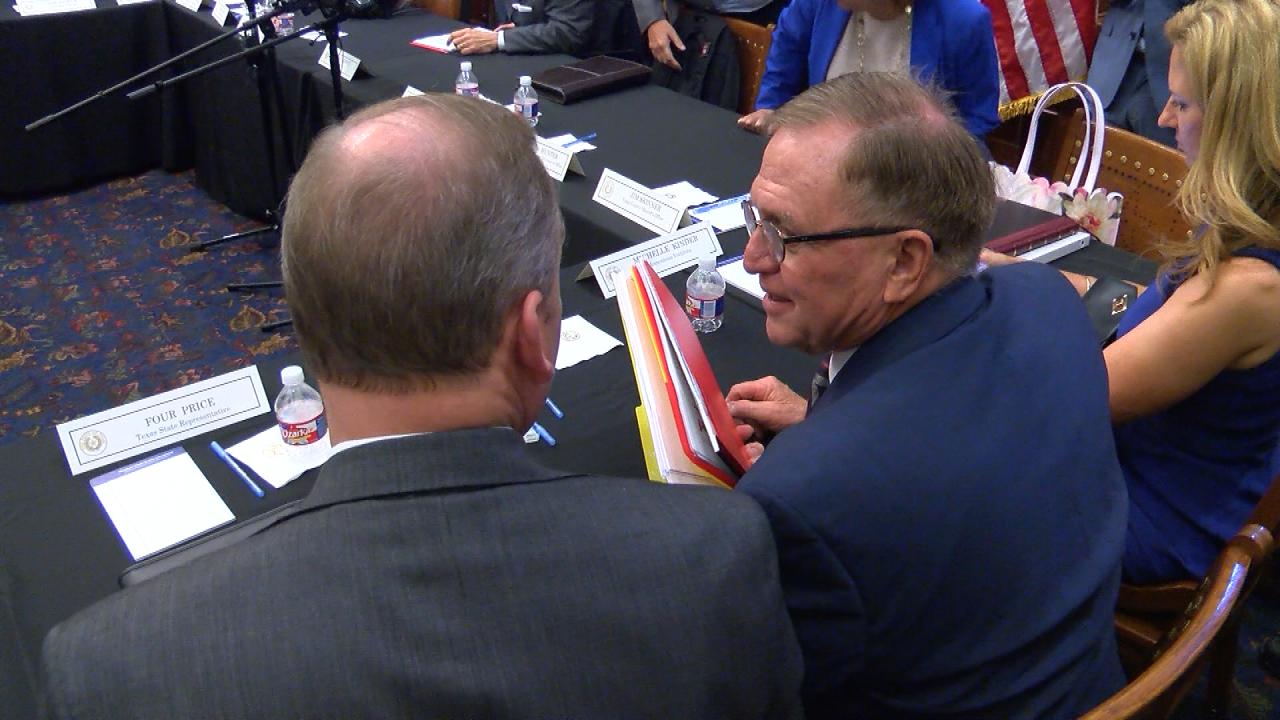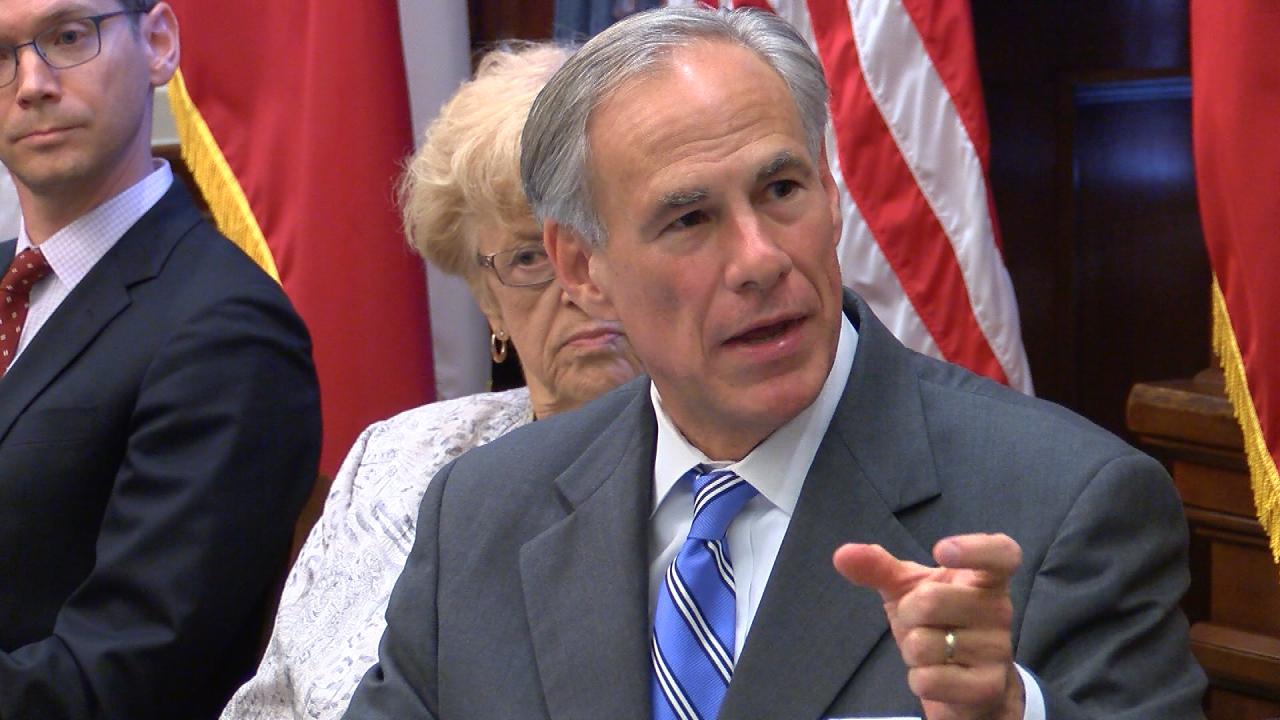Advocates on both sides of the gun control debate met with Gov. Greg Abbott on Wednesday to talk about protecting Texas school kids. The conversation also included mental health experts.
“The mental health to me is such an important component of all this, particularly early detection of a mental health issue,” Sen. John Whitmire, D-Houston, said ahead of Wednesday’s meeting.
Gov. Abbott invited a group of bipartisan lawmakers to join the discussion, which lasted more than three hours. After the closed-door meeting, he told reporters he could get behind regulations that included requiring judges to report court orders that would deny people access to guns for safety reasons more quickly.
“In the state of Texas right now, that report can be delayed for as long as 30 days, which is incomprehensible,” Abbott said. He also mentioned he could support guidelines like reporting theft or loss of guns.
Abbott said one of the themes everybody in the room agreed upon was “the necessity of the safe storage of guns.”
House Speaker Joe Straus, R-San Antonio, said he was encouraged by the conversations in the meetings so far.
“People of diverse viewpoints have been invited to express themselves, so I think that’s always the best way to start when you’re looking for some substantive lasting solutions,” Straus said.
Two of Wednesday’s invited panelists came to talk about a Texas Tech program that was developed to screen for kids who could pose a safety risk to themselves or their peers.
The program, called the Telemedicine Wellness, Intervention, Triage, and Referral Project (TWITR) was designed for junior high and high school students to prevent them from harming one another or themselves. Abbott touted the program after its success in 10 West Texas school districts, and the program’s leader said he believed it could be replicated around the state.
“We could train and give technical assistance and ensure we have a high fidelity replication of it and that would go a long way,” Dr. Billy Philips, Ph.D, said. Philips is the Texas Tech University Health Sciences Center executive vice president for the F. Marie Hall Institute for Rural and Community Health.
“It wouldn’t be the only thing we should do, it would just be a part of making schools safer places,” he added.
One of the districts where TWITR is implemented was represented at the meeting with Abbott. Ralls Independent School District Superintendent Chris Wade said the program has been used in the district for four years.
“If we see a student that’s at risk of hurting themselves or others, it’s a great avenue and program to use and we’ve helped some of our kiddos in getting better,” Wade said after the meeting. He said TWITR and the district’s guardian program are ways school administrators work to keeping kids safe. The district also has some teachers on campus who are armed.
Abbott plans to take the suggestions offered by the people in these meetings, and list some of his own in the coming weeks. Some of those changes will require legislative approval.
“If we can come up with good policy that can be implemented before the beginning of the next school year then I think that’s everyone’s goal,” Straus said.
The third and final roundtable of the week was set for Thursday, which will include victims and survivors of deadly shootings in Santa Fe, Sutherland Springs and Alpine. Republican U.S. Sen. Ted Cruz is also expected to attend, as is the state’s Attorney General Ken Paxton.
Members of the public wishing to contribute an opinion on school safety in Texas may submit comments by clicking here.





























